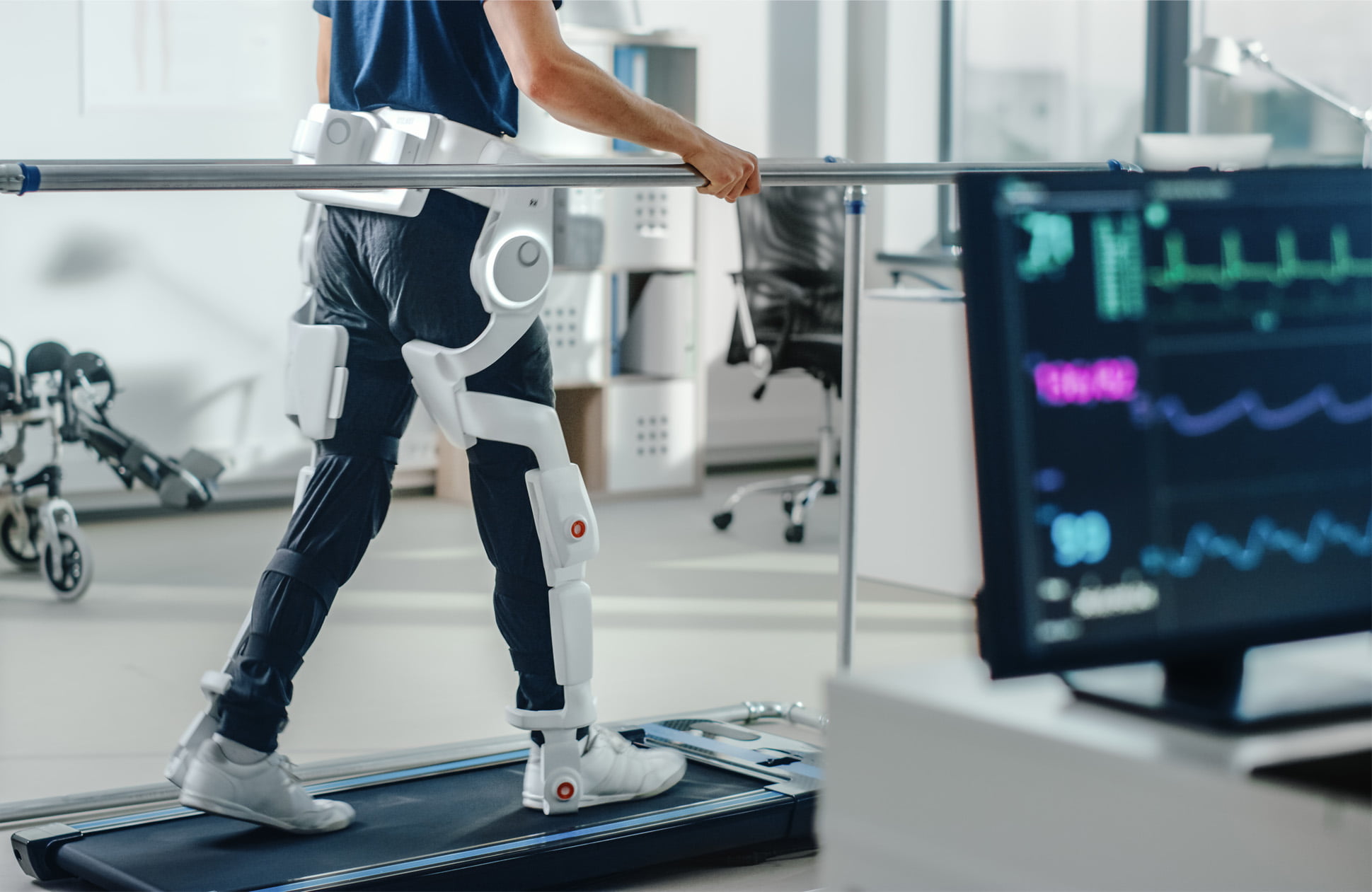Let’s take a look into the future and see what’s on the horizon in Assistive Tech. Assistive Tech is a technology that positively impacts personal lives, work opportunities, and educational options for those with disabilities and constantly pushes the boundaries of innovation. Major technology and software developers such as Zoom, Apple, Google, and Microsoft are all making changes to their platforms and products to adopt a more inclusive approach towards accessibility.
Advanced modern devices that utilise computers are becoming the new norm. Wirelessly connected appliances within smart homes can assist sensory-disabled people.
Exoskeleton suits are designed to give those with weakness and limited movement issues the chance to walk again, and the future is quicker, stronger and more affordable.
Gesture-controlled devices using technology similar to a Nintendo Wii or Xbox Kinect are also being developed, as well as those which you can control just by thinking. Instead of flicking a switch to turn off a light, one day someone using this technology will be able to turn it off with a thought.
Other innovations in development include wheelchairs that can go up and down stairs, navigate difficult terrain, and even self-drive. Google is also investing heavily in self-driving cars through their Google Chauffeur software. Tesla has been at the forefront of this tech for years now, and in May this year, Google debuted a new prototype of their latest model. A vehicle that has neither a steering wheel nor pedals and is equipped with sensors to steer, accelerate and break to be 100% autonomous.
Neurodivergent Technology Assistance products will also play a significant role in the future. Virtual reality rehabilitation, communication devices, and wearable sensory devices for sensory-disabled people are becoming more and more common and available.
Assistive technology will enhance more and more people’s life experiences in the future, and enable a better quality of life and a sense of independence for those living with a disability. The future will be faster, smarter and more reliable, and assistive technology will play a significant role in impacting many lives.
Some of these developments may be here now, a year or so away, and some may not see the light of day. However, a focus on the development of technologies such as these could change what the world for people with a disability looks like in the future, and level the proverbial playing field for all. The future of assistive technology is bright.
If you have experience producing Assistive Products for Personal Care and Safety, vehicle modification interests or knowledge in Personal Mobility Equipment, then why not reach out to HCPA and discuss how you could start your own business of the future? Visit us here, and one of our admin team will be in touch.
If you are interested in the world and future of disability support, please contact us here and we can discuss how your time and skills can help build a better future for all.
SOURCES | Atera ‘How Accessibility Tech could change the future’ | NDIS funding isn’t just a one-way street – it helps participants secure work and give back to the economy |





